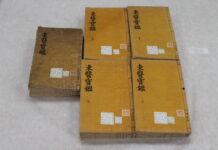
Acupuncturists Understand a Patient as Whole Living Creature with Soul
By David Park, Founder, South Baylo University
We have reviewed differences and similarities between conventional science, new science, and acupuncture theory.
Conventional scientific theories began with the premise, whether we recognize it or not, that reality exists. And the purpose of the study should be a process to find the ultimate reality.
Unlike conventional scientific theories, new scientific theories claim there is no such ultimate reality. As much as we understand and recognize is a boundary for precepting as reality.
Modern society is considered an age of uncertainty. This expression was from John Kenneth Galbraith’s book, The Age of Uncertainty. And the phrase is widely used in many fields of study now.
In the scientific field, the uncertainty principle and Fuzzy logic have been widely accepted to understand, explain, and predict phenomena of modern society which is filled with full of uncertainty.
The uncertainty principle was introduced first in 1927, by the German physicist, Werner K Heisenberg and the uncertainty principle states that the more precisely the position of some particle is determined, the less precisely its momentum can be predicted from initial conditions, and vice versa.
Fuzzy logic is a form of many-valued logic in which the truth values of variables may be any real number between 0 and 1 both inclusive. It is employed to handle the concept of partial truth, where the truth value may range between completely true and completely false. By contrast, in Boolean logic, the truth values of variables may only be the integer values 0 or 1. The term fuzzy logic was introduced with the 1965 proposal of the fuzzy set theory by Lotfi Zadeh. Fuzzy logic is based on the observation that people make decisions based on imprecise and non-numerical information.
The theory of uncertainty and fuzzy theory could be applied or represented to acupuncture theory.
Conventional medicine treats a symptom found through diagnosis. But acupuncture theory requires examinations of a patient’s overall conditions by performing tongue diagnosis, pulse diagnosis and observation of patient’s posture, facial color, etc. An acupuncturist should not be focused on the symptom that the patient complains about. Acupuncturist tries to find the root cause reason and related symptoms that the patient does not recognize. It is not a rare case that treatment of a symptom resolves other symptoms including chief complaints.
Acupuncture treatment could be understood as fuzzy by conventional medicine. But the fuzzy way of diagnosis has been developed through trial and error and cumulated experiences for the ultimate result. Some compare a medical doctor as a mechanic and the other considers an acupuncturist as a gardener. Mechanics replace parts but gardeners tend to and care for the trees and flower rather than digging them out.
There are different approaches for treatment among an acupuncturist and a medical doctor.
Acupuncture will be needed more than ever because acupuncture treatments are not limited to physical symptoms. It cures physical pains as well as psychological issues.
Modern society faces its limit. People think we can replace or create the human body or the universe with modern technology, but this has not been always successful. There are consequences to such hubris and created side effects from arrogancy.
The recent worldwide spread of the Coronavirus is one of the side effects of humans’ believe we believe that we can create everything we need by using modern technology. Now is the time for applying Fuzzy and Uncertainty theories to the U.S. healthcare system to resolve issues.







































